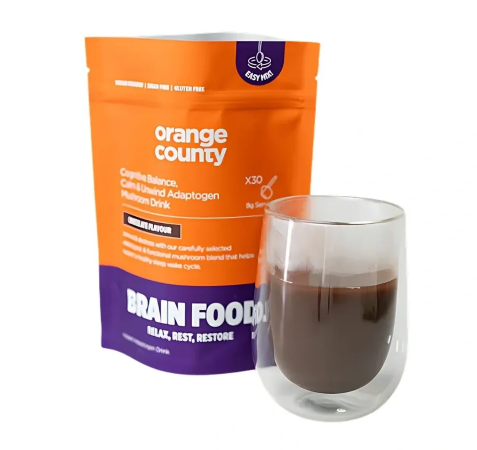Introduction
Joint pain is a common condition that affects many individuals, often causing discomfort and limiting mobility. CBD (cannabidiol) has gained attention for its potential therapeutic properties, including its ability to alleviate joint pain. This comprehensive guide aims to provide a thorough understanding of CBD for joint pain relief, including its benefits, potential mechanisms of action, proper usage, and considerations when incorporating CBD into your joint health routine.
Table of Contents
Understanding Joint Pain
- Overview of joint pain causes, including arthritis, injury, and inflammation
- The impact of joint pain on daily life and well-being
Introduction to CBD:
- What is CBD, and how is it derived?
- Differentiating CBD from THC and clarifying legal considerations
- The endocannabinoid system and its role in pain modulation
The Benefits of CBD for Joint Pain:
- Potential anti-inflammatory properties of CBD
- CBD’s potential to reduce pain perception and improve mobility
- Scientific research and studies supporting the use of CBD for joint pain relief
Choosing the Right CBD Products:
- Understanding different CBD product formats, such as oils, topicals, and capsules
- Factors to consider when selecting CBD products for joint pain relief
- Reading product labels and understanding CBD potency and quality
Proper Dosage and Administration:
- Determining the appropriate CBD dosage for joint pain relief
- Different administration methods and their pros and cons
- Monitoring the effects and adjusting the dosage as needed
Potential Risks and Side Effects:
- Common side effects of CBD and their likelihood
- Potential drug interactions and precautions
- Consulting with a healthcare professional before starting CBD for joint pain relief
Incorporating CBD into Your Joint Health Routine:
- Combining CBD with other lifestyle factors, such as exercise and a healthy diet
- Considering additional natural remedies and therapies to complement CBD
- Creating a personalized joint health routine using CBD as a part of a holistic approach
Lifestyle Considerations for Joint Health:
- Maintaining a healthy weight to reduce joint strain
- Engaging in regular exercise and incorporating low-impact activities
- Ergonomic tips for joint-friendly movement and posture
Frequently Asked Questions about CBD for Joint Pain:
- Addressing common concerns and misconceptions surrounding CBD use for joint pain relief
- Exploring alternative pain management strategies and their compatibility with CBD
- Safety considerations for specific populations, such as pregnant individuals or those with chronic health conditions
Conclusion
- Recap of the benefits, considerations, and proper usage of CBD for joint pain relief
- Encouragement to consult with healthcare professionals and seek personalized guidance
- Acknowledgment of CBD’s potential as a natural option for joint pain relief, but emphasizing the importance of individualized approaches
Conclusion
CBD has emerged as a potential natural remedy for joint pain relief, offering a non-intoxicating option with few reported side effects. However, it’s essential to approach CBD usage for joint pain with caution and seek guidance from healthcare professionals. Understanding the benefits, potential risks, and proper dosage can help individuals make informed decisions and optimize their joint health routine.
While CBD may offer relief for joint pain, it’s important to adopt a holistic approach to joint health by incorporating other lifestyle factors, such as exercise, maintaining a healthy weight, and practicing proper ergonomics. These elements, combined with CBD, can contribute to overall joint well-being
and help individuals lead a more comfortable and active life.
Remember, everyone’s experience with CBD may vary, and what works for one person may not work the same for another. It’s important to start with a low dosage and gradually increase it as needed while closely monitoring your body’s response. Consulting with a healthcare professional who is knowledgeable about CBD and joint health can provide personalized guidance and ensure that CBD is suitable for your specific needs and health conditions.
Additionally, it’s crucial to choose high-quality CBD products from reputable manufacturers. Look for third-party lab testing and certificates of analysis to verify the purity and potency of the CBD. This ensures that you are using a safe and reliable product for your joint pain relief.
Lastly, keep in mind that CBD is not a magical cure-all and should be used as part of a comprehensive approach to joint health. Adopting a healthy lifestyle, including regular exercise, maintaining a healthy weight, and practicing good posture, is essential for supporting joint function and minimizing pain. Consider incorporating other complementary therapies, such as physical therapy, acupuncture, or massage, to enhance the overall effectiveness of your joint pain management.
In conclusion, CBD offers a potential natural alternative for individuals seeking joint pain relief. With its potential anti-inflammatory and analgesic properties, CBD may help alleviate discomfort and improve mobility. However, it’s crucial to approach CBD usage responsibly, starting with a low dosage, choosing high-quality products, and seeking guidance from healthcare professionals.
By combining CBD with other lifestyle factors and complementary therapies, individuals can optimize their joint health routine and strive for improved quality of life. Remember to listen to your body, monitor your response to CBD, and make adjustments as needed. With the right approach, CBD can be a valuable tool in managing joint pain and supporting overall joint health.
- Sip and Savor: My Fun Review of Mushroom Drinks from House of Shrooms - July 30, 2024
- Benefits of Black Cohosh Supplements - March 29, 2024
- Benefits of Bilberry Supplements - March 29, 2024




